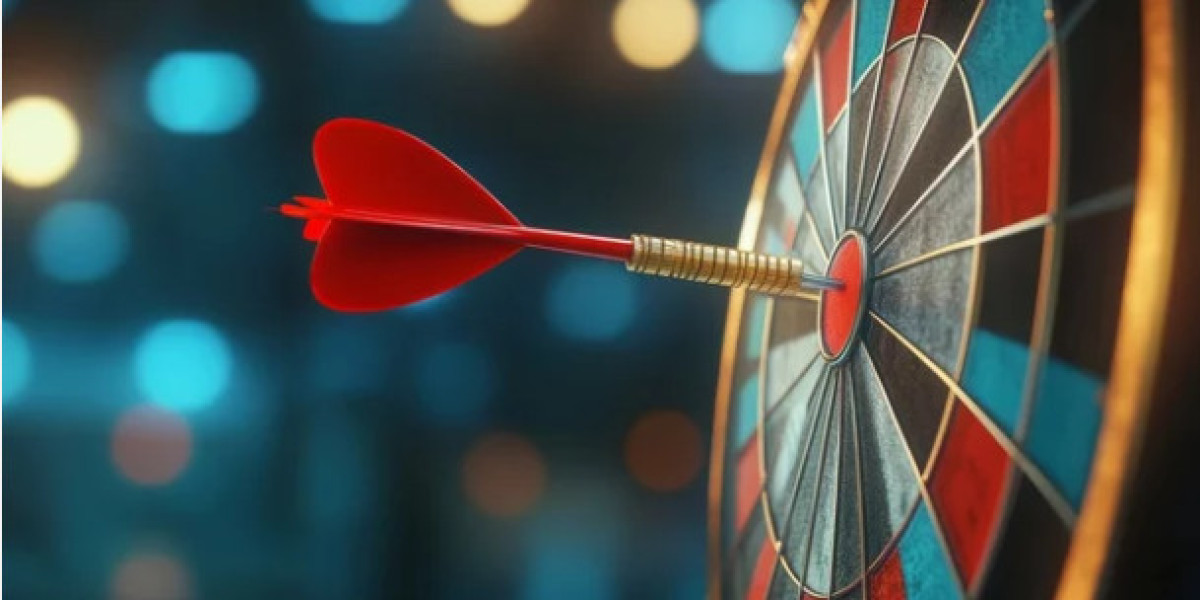The debate about whether darts qualifies as a sport has been ongoing for decades. For many, the answer is a resounding "yes," while others argue that it lacks the physical exertion traditionally associated with sports. This topic often stirs strong opinions, and perhaps that's because darts exists in a unique space where athletic skill, precision, and mental focus converge. So, is darts a sport? Let’s dive deep into this question, examining the defining characteristics of a sport and how darts fits—or doesn’t fit—into the equation.
What Defines a Sport?
To decide whether darts is a sport, we first need to understand what constitutes a sport. According to the Oxford English Dictionary, a sport is defined as "an activity involving physical exertion and skill in which an individual or team competes against another or others for entertainment." Breaking this definition down, we can identify three core elements:
Physical Exertion: A sport traditionally involves some level of physical activity, whether it’s running, jumping, or throwing.
Skill: Sports require honed abilities and practice, be it precision, strategy, or technique.
Competition: Sports involve an element of rivalry where individuals or teams strive to outperform others.
Darts and Physical Exertion
When most people think of physical exertion, they envision athletes running on a track, swimming laps, or engaging in intense workouts. By that standard, darts seems to fall short. Throwing a dart at a board doesn’t require the same level of physical endurance as running a marathon or playing a basketball game.
However, this perspective overlooks the finer nuances of physical activity. While darts may not demand the same cardiovascular effort as traditional sports, it does require physical precision. Players must maintain a steady hand, control their breathing, and achieve consistent arm movements—all of which demand muscle memory and fine motor skills.
Furthermore, many professional dart players spend hours refining their technique, often practicing for six to eight hours a day. The repetitive nature of dart throwing can be physically taxing, particularly during tournaments where matches can last for hours. While it’s not a workout in the conventional sense, the physical demands of darts are undeniable when you consider the accuracy and consistency required.
Darts and Skill
One area where darts unquestionably shines is in its demand for skill. Precision, hand-eye coordination, and a deep understanding of mathematics are at the heart of the game. The bullseye may be small, but the difference between winning and losing often comes down to millimeters.
Consider the 501 format, the most common professional game. Players must subtract their scores from 501, aiming for the double segment to finish. This introduces an element of strategy and mental agility; knowing which numbers to aim for and executing that plan under pressure is no small feat.
Moreover, the skill required to play darts isn’t just physical but also mental. Professional players are known for their ability to remain calm and composed in high-pressure situations. The mental focus required to block out distractions and deliver consistent throws makes darts as much a psychological battle as it is a physical one.
Darts and Competition
If there’s one aspect of darts that unquestionably aligns with the definition of a sport, it’s competition. From local pub leagues to international tournaments like the PDC World Darts Championship, darts thrives on rivalry.
Professional darts is a global phenomenon, with players competing for significant prize money and world rankings. Events are broadcast to millions of fans, with players becoming household names in regions where darts enjoys massive popularity. The competitive spirit of darts is evident in the passion of its players and the intensity of its matches.
What’s more, darts has a long history of sportsmanship and camaraderie. Players respect each other’s abilities, and even at the highest levels, there’s a sense of community among competitors. This spirit of fair play and mutual respect is a hallmark of many sports, further strengthening darts’ case.
Arguments Against Darts as a Sport
Despite the compelling arguments in favor of darts as a sport, skeptics often point to its leisurely origins. Traditionally played in pubs and bars, darts has a casual and recreational image. The stereotype of players with a pint in one hand and a dart in the other has persisted, leading some to dismiss it as a pastime rather than a sport.
Another argument revolves around the lack of physical exertion. Critics claim that activities like chess or eSports, which also rely heavily on mental skill, are more akin to games than sports. If we follow that logic, darts might fall into the same category—a game requiring skill but lacking the physical intensity typically associated with sports.
Finally, detractors might argue that the professionalization of darts doesn’t necessarily elevate it to the status of a sport. After all, other competitive games, like poker or billiards, have professional circuits and fan followings but are not universally considered sports.
The Evolution of Darts
One factor that strengthens darts' case as a sport is its evolution over the years. What was once a casual pub game has transformed into a professional discipline with rigorous standards and global appeal. Governing bodies like the Professional Darts Corporation (PDC) and the British Darts Organisation (BDO) have worked tirelessly to elevate the sport’s profile, introducing strict rules, organized tournaments, and professional rankings.
Modern darts players are also shattering old stereotypes. Many of today’s professionals prioritize fitness and mental well-being, recognizing that endurance and focus are crucial for peak performance. Players like Gerwyn Price, a former rugby player, have brought a new level of athleticism to the game, challenging perceptions about what it means to be a darts player.
How Does Darts Compare to Other Recognized Sports?
To further understand where darts stands, it’s useful to compare it to other recognized sports. Archery and shooting are two examples that share similarities with darts. Both involve precision, concentration, and aiming, yet they are universally acknowledged as sports. Like darts, they don’t require significant physical exertion but demand exceptional skill and mental discipline.
Similarly, sports like golf and curling involve strategy, precision, and a combination of physical and mental skills. These comparisons suggest that physical exertion alone isn’t the defining characteristic of a sport—skill and competition are equally important.
The Role of Fans and Culture
Another dimension to consider is the role of fans and culture. Darts has a vibrant and passionate fan base. Events like the PDC World Championship are electrifying, with audiences donning costumes, chanting, and creating an atmosphere rivaling that of any major sporting event.
This enthusiastic following is a testament to the sport's entertainment value and its ability to bring people together. The cultural significance of darts in countries like the UK, the Netherlands, and Germany further underscores its legitimacy as a sport.
Conclusion: Is Darts a Sport?
So, is darts a sport? Based on the criteria of physical exertion, skill, and competition, the answer leans toward "yes." While it may not involve the same level of physical intensity as traditional sports, darts demands precision, focus, and practice, all of which are hallmarks of athletic discipline.
Moreover, the competitive nature of darts, its professionalization, and its passionate fan base all point to its legitimacy as a sport. Like archery or shooting, darts proves that physical exertion isn’t the sole determinant of what makes an activity a sport.
At the end of the day, whether you view darts as a sport or a game may depend on your personal definition of sports. But one thing is clear: darts is far more than a casual pastime. It’s a game of skill, strategy, and mental toughness—a competition that has captured the hearts of millions around the world.
For those who dismiss darts as "just a pub game," perhaps it’s time to pick up a set of darts and aim for the bullseye. You might find yourself appreciating the remarkable precision and focus it takes to hit the mark—not just in the game, but in the ongoing debate about whether darts is truly a sport.








